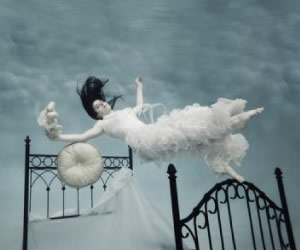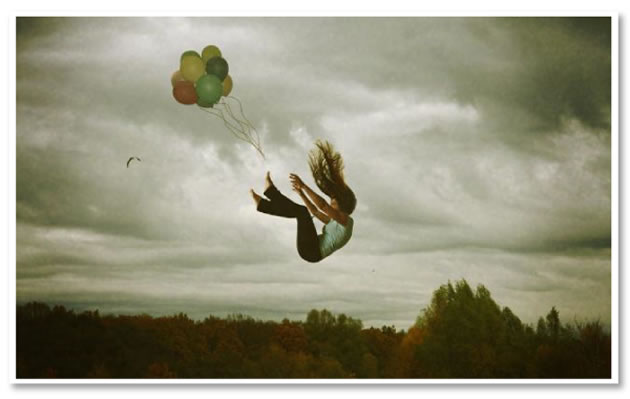
Have you ever experienced, while sleeping peacefully, to wake up because of a sudden feeling of falling into the void: to whom has not it ever happened? It surely has happened to you, at least once in your lifetime, to sleep and feel, shortly after, the floor suddenly disappear under your feet and fall into a deep abyss. The heartbeat speeds up and you wake up scared, with a strong sense of disquiet... It is certainly not pleasant. Relax, because it is not a sign of madness nor of foresight. Behind this rather common phenomenon (involving 7 subjects out of 10) lies a simple and specific physical reason.
You must first make a distinction between two different moments in which the sensation of falling into the void occurs: while you fall asleep, or during the REM phase that is during the moment of dreaming.
1. WHILE YOU FALL ASLEEP
If you think a moment about all the times you have dreamed of falling, for sure you will realize that it usually occurs just a few minutes after you have fallen asleep. The tremors that you usually perceive are due to the "sleep starts" phenomenon that is the transitional phase in which we move from wakefulness to sleep. It is a particular time in which our body undergoes a process of muscle tone reduction and gradual discontinuation of sensory signals. The body, perceiving the arrival of the sleep and of the falling asleep phase, relaxes muscles and soothes the nerves, this can be felt abruptly, especially if you are lying down in a moment of anxiety or stress: the sudden voltage drop causes a sort of shock to the body, which reacts giving you the feeling of falling into the void. This feeling is very often accompanied by hallucinations and visions of images which are expressed in those short moments before returning to consciousness. In this way you relive, asleep, an experience already lived while awake, such as the loss of a support or a fall from a step, a chair or from a greater height.

2. WHILE SLEEPING
The sensation of falling that occurs in the REM phrase, however, takes place when the body is completely static and paralyzed and dreams are more "alive". The fall is more captivating and much longer than a real one might be. Fortunately it is just a dream, otherwise who knows how much damage all these long falls would cause! In this case, there is not a physiological explanation for this feeling, rather it is necessary to enter the dreamlike texture to capture the psychological profile of someone who is dreaming, and to understand its meaning. The REM phase, in particular, is the time during which all the fears, anxieties, joys you feel or have experienced in daily life are brought to life. The emotional aspect emerges so strongly and reflects itself, as always happens even while awake, on the body and muscles, which undergo a sort of shudder. Thus the sensation of falling becomes, in every way, absolutely realistic leading the person to the interruption of his sleep and to find himself in a state of panic and agitation.
 So it would seem that the main causes for this sensation are stress and anxiety. Some studies have shown that people who suffer from these, have more episodes of "free falling".
It should also be said that, in many cases, the feeling of falling while asleep is also in some way related to the age of the subject.
Many people dreamed of falling especially in their youth,
So it would seem that the main causes for this sensation are stress and anxiety. Some studies have shown that people who suffer from these, have more episodes of "free falling".
It should also be said that, in many cases, the feeling of falling while asleep is also in some way related to the age of the subject.
Many people dreamed of falling especially in their youth, while with the passage of time, this feeling is no longer felt. People dream of being chased, unable to move and then run away or even of being able to make huge leaps, such as down the stairs even jumping from one ramp, with the feeling of flying. In particular, this feeling would be linked, according to some, to the desire of looking ahead, to achieve certain goals, to the yearning of freedom, which inevitably, with the passing of the years, slowly fades.
while with the passage of time, this feeling is no longer felt. People dream of being chased, unable to move and then run away or even of being able to make huge leaps, such as down the stairs even jumping from one ramp, with the feeling of flying. In particular, this feeling would be linked, according to some, to the desire of looking ahead, to achieve certain goals, to the yearning of freedom, which inevitably, with the passing of the years, slowly fades.
